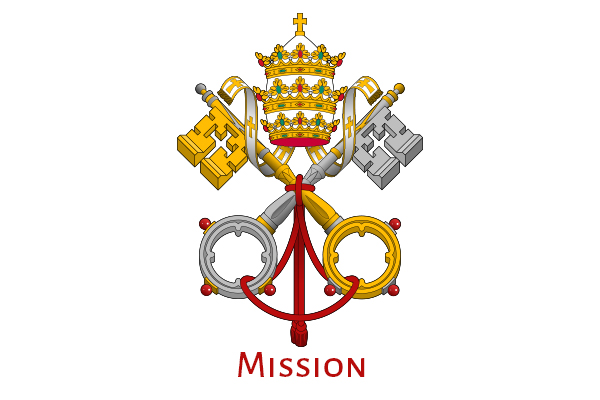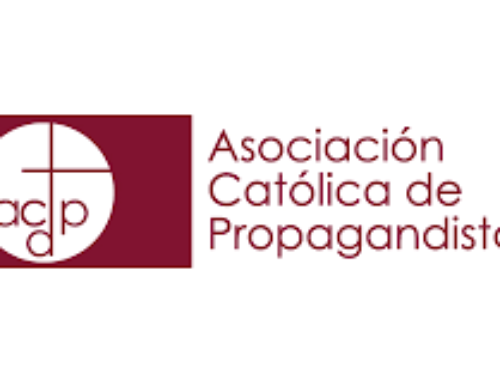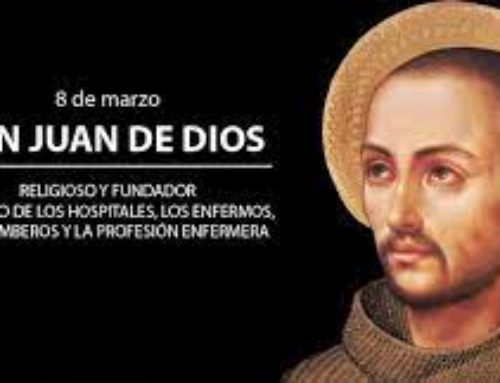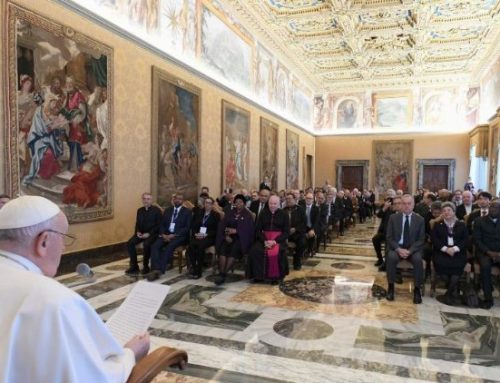On October 6, 2023, The Permanent Observer Mission of the Holy See to the United Nations issued a statement to the Third Committee, which addresses human rights, humanitarian affairs, and social matters. The meeting topic was agenda item 69: “promotion and protection of the rights of children.”
Monsignor Robert Murphy, Chargé d’Affaires, a.i. and Deputy Permanent Observer of the Holy See to the United Nations, delivered the statement.
The promotion and protection of the rights of children cannot be separated from measures to support and strengthen the family, Monsignor Murphy said, which is the “fundamental group unit of society.” He stated the Holy See’s position that all children deserve to be cherished, nurtured, and protected, and that children need safeguards and care before and after birth. In particular, he advocated against abortion and assisted reproduction.
Regarding the digital world, Monsignor Murphy warned that technologies can facilitate child exploitation, trafficking, remote child abuse, and inappropriate exposure to sexual material. Education for children as well as and parents and families is crucial to ensure the safety and protection of children online.
The text of the statement follows.
Statement by the Permanent Observer Mission of the Holy See
to the United Nations
UNGA 78 – Third Committee
Item 69: Promotion and protection of the rights of children
6 October
Mr. Chair,
The Holy See welcomes the discussion on the promotion and protection of the rights of the child. As Pope Francis has stated, “The dignity and rights of children must be protected by legal systems as priceless goods for the entire human family.”[1]
The promotion and the protection of the rights of the child cannot be separated from measures to support and strengthen the family, since the “family is the natural and fundamental group unit of society and is entitled to protection by society and the State,” as also recognized in the Universal Declaration of Human Rights.[2] Therefore, any discussion of the rights of the children must be linked to the family.
Indeed, a society that promotes the protection of the child promotes the well-being of the family. In fact, a child’s development, sense of identity and belonging, health, education and success in adulthood are closely linked to the resources that families have at their disposal to enable children to flourish as human beings. For this reason, policy makers should provide programmes that support and complement mothers and fathers, rather than replace them.
Mr. Chair,
The child “needs special safeguards and care, including appropriate legal protection, before as well as after birth.”[3] At a time when medicine has the capacity to provide life-saving treatment to pre-born children, it is also used to end the lives of some 73 million of them annually through abortion,[4] including through prenatal sex selection and eugenic abortion, victimizing girls and children with disabilities. Genetic selection also occurs through the screening of embryos used in assisted reproduction. Assisted reproduction, particularly in the form of surrogacy, reduces the child to a mere object to be used to satisfy the wishes of adults rather than a gift to be welcomed and cherished. These practices are incompatible with respect for the dignity and rights of the child.
Mr. Chair,
Children today are growing up in a far more technological world than previous generations, with all the opportunities and risks that this entails. The challenge “is to ensure that minors have safe access to these technologies, while at the same time ensuring their healthy and serene development and protecting them from unacceptable criminal violence or grave harm to the integrity of their body and spirit.”[5] These technologies can facilitate child exploitation and trafficking as well as remote child abuse, including sexual abuse.[6]
In this regard, the Holy See condemns in the strongest possible terms the production, distribution and use of child pornography, facilitated and accelerated by ICTs. Naturally, our first concern is for the children that are directly victimized in the production of such materials. However, my Delegation also notes with concern that, as technology advances, generative software allows the creation of simulated images of child sex abuse, which further drive the demand for such materials and can make it harder both to identify victims and to prosecute offenders. The Holy See also notes with concern the dramatic growth of adult pornography in the digital world, which is increasingly accessible to children. This phenomenon sexualizes children at a young age, imprinting in them an improper conception of loving human relations and a general loss of the sense of human dignity.[7] As Pope Francis has noted, it is a mistake to think that a society where an abnormal consumption of internet sex is rampant among adults could be capable of effectively protecting minors.
In this regard, education, both for children and their parents and families, is essential to ensure the safety and protection of the child in our digital world. Children’s digital education should be based on knowledge of and respect for the equal dignity of every person, including preventing and addressing cyberbullying, and teaching them when and how to seek help from parents, other family members, and teachers. Parents should be made aware of online risks and the safeguarding tools available to them, as well as how to guide their children in the safe and healthy use of technology.
Mr. Chair,
“A child is not something owed to one, but is a gift,”[8] each of whom deserves to be cherished, nurtured, and protected from his or her earliest moments with the “special care and assistance” due to childhood.[9] With this as a firm foundation, we can achieve respect for the dignity and rights of each and every child.
Thank you.
________________________________________
[1] Pope Francis, Address to the Participants in the Congress on Child Dignity in the Digital World (6 October 2017).
[2] Universal Declaration of Human Rights, art. 16(3).
[3] Convention on the Rights of the Child, preamble. Cf. A/Res/1386(XIV), Declaration on the Rights of the Child, preambular paragraph 3.
[4] World Health Organization, Abortion, https://www.who.int/news-room/fact-sheets/detail/abortion (last visited 3 October 2023).
[5] Pope Francis, Address to the Participants in the Congress on Child Dignity in the Digital World (14 November 2019).
[6] Cf. ibid.
[7] Cf. Pope Francis, Address to Participants in the Congress on “Child Dignity in the Digital World,” Rome, 14 November 2019.
[8] Catechism of the Catholic Church, no. 2378.
[9] Cf. Universal Declaration of Human Rights, art. 25(2).










